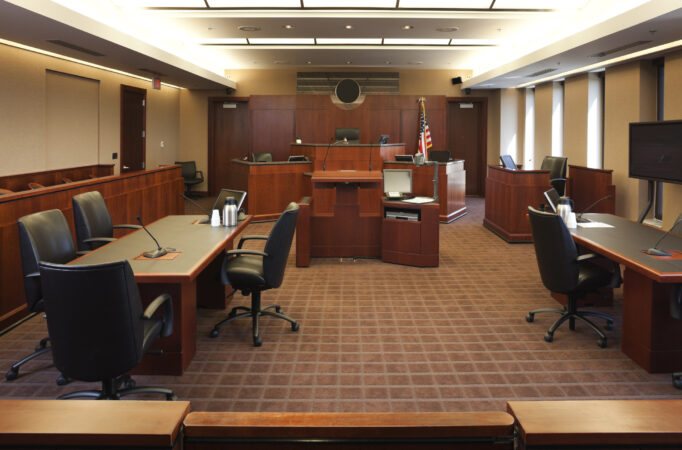Litigation
Supreme Court Grants Appeal in Another Mechanic’s Lien Case
In August of 2014, the Pennsylvania Supreme Court, at 97 A.3d 739, granted a Petition for Allowance of Appeal from the Superior Courts unpublished opinion in Terra Technical Services, LLC. v. River Station Land L.P., 82 A. 3d 1084 (Pa. Super. 2013). The issues to be considered on appeal are limited to:
(1) Whether the Superior Court committed an error of law by upholding the Trial Court’s Order sustaining preliminary objections of Respondent and striking the complaint in an action to obtain judgment on the mechanics’ lien claim because Petitioner failed to file the complaint under a separate court term and number from that of the mechanics’ lien claim under the Mechanics’ Lien Law 49 P.S. § 1101, et seq.
(2) Whether the Mechanics’ Lien Law 49 P.S. § 1101, et seq., requires a claimant filing a complaint to enforce a mechanics’ lien to file that complaint under a term and number separate from the term and number assigned to the mechanics’ lien itself.
In Terra Technical, the Superior Court held that actions to compel judgment on mechanic’s liens must be filed separately from the liens themselves.
Claimant that filed the suit cited the 2012 Superior Court opinion in Bricklayers [since reversed], arguing that the Mechanic’s Lien Law should be interpreted liberally, allowing its case to survive. But the Superior Court disagreed.
Terra Technical Services filed 17 mechanic’s liens in 2010 claiming approximately $900,000 from the property owner. It later sought to enforce the liens by filing civil action complaints under the same docket numbers as the liens. The trial court struck all of the complaints and Terra Technical appealed to the Superior Court.
According to the three judge panel of the Superior Court, “An action does not commence by the filing of a mechanic’s lien claim. . . Likewise, where one files a mechanic’s lien claim and then files a complaint in the same proceeding, an action does not commence. As such, Terra’s argument that under a joint reading of Mechanic’s Lien Law and the Rules of Civil Procedure, the statute and the rules do not require the initiation of a new action under a separate term and number to enforce a lien claim is erroneous and misguided.”
According to the court’s opinion in Terra Technical, the rules governing mechanic’s liens require that an “action” to recover on a mechanic’s lien starts with the filing of a complaint, not the filing of the lien.
Looking to Bricklayers of Western Pennsylvania Combined Funds v. Scott’s Development, which was decided by the Superior Court in 2012, Terra argued that “a liberal construction of the law should be applied to the matter,” Superior Court judge Ott, who was joined by President Judge Susan Peikes Gantman and Judge Cheryl Lynn Allen stated: “In this regard, Terra asserts the Mechanic’s Lien Law and the Rules of Civil Procedure do not entail the initiation of a new action under a separate term and number to enforce a lien claim but ‘simply require the filing of a complaint with the prothonotary'”.
The appeal court quoted at length from the trial court opinion, with which it agreed. The trial court explained that the Pennsylvania Rules of Civil Procedure define the words “claim” and “action” differently, with “claim” meaning the filing of a mechanic’s lien and “action” meaning filing a complaint seeking a judgment on the lien. According to the court, the filing of that complaint marks the beginning of an action, not the filing of the lien.
“Thus, it is the complaint or agreement for an amicable action that starts or begins the action. This language is inconsistent with the contention that the complaint is to be filed as part of the already existing claim. Filing the complaint as part of the claim proceeding would not be starting or beginning anything.”
The Court continued: “Moreover, Terra’s filing of the 17 identical mechanic’s liens on March 3, 2010, did not constitute ‘commencement’ of this action against River Station. Further, Terra’s subsequent filing of 17 identical complaints in civil action to obtain judgment on the mechanic’s liens on March 2, 2012, under the same filing numbers as the mechanic’s liens, also did not ‘commence’ the action. Accordingly, Terra did not comply with the procedural requirements of the Mechanic’s Lien Law, and, therefore, it has not commenced actions to obtain judgment upon the mechanic’s lien claims filed.”
The court also dismissed Terra’s argument that it’s [now reversed] decision in Bricklayers would confer liberal interpretation of the mechanic’s lien statutory construction to such a degree that the company wouldn’t have to file a complaint separately from the lien in order to start the action.
“Terra’s argument that, based on Bricklayers, the Mechanic’s Lien Law may only be viewed through the lens of liberal construction is erroneous.” “Furthermore, Bricklayers is distinguishable from the present matter as it applied a liberal construction to the substantive scope of the statute and did not expand such interpretation to the procedural requirements of the statute.”
One would hope that the Supreme Court would take this opportunity to clarify the issue of whether the Mechanic’s Lien Law should be liberally construed in its entirety, only on substantive issues, or not at all, in keeping with past practice: an opportunity it failed to seize in its opinion overturning the Superior Court in Bricklayers.
About Us
The litigation attorneys at Houston Harbaugh, P.C., are accomplished business trial lawyers, providing comprehensive support in litigation across a broad spectrum of matters throughout Pennsylvania, West Virginia, Ohio and other jurisdictions upon a special admission basis. Our clients are regional and national small, medium and large companies and individuals who seek well planned and aggressive, but cost effective litigation. We counsel, we budget, we have a deep bench, we act quickly when needed and we have experienced trial lawyers who know the courts and bench. We serve regularly as local counsel for some of the largest law firms in the country when they have matters in this region.

Henry M. Sneath - Practice Chair
Co-Chair of Houston Harbaugh’s Litigation Practice, and Chair of its Intellectual Property Practice, Henry Sneath is a trial attorney, mediator, arbitrator and Federal Court Approved Mediation Neutral and Special Master with extensive federal and state court trial experience in cases involving commercial disputes, breach of contract litigation, intellectual property matters, patent, trademark and copyright infringement, trade secret misappropriation, DTSA claims, cyber security and data breach prevention, mitigation and litigation, probate trusts and estates litigation, construction claims, eminent domain, professional negligence lawsuits, pharmaceutical, products liability and catastrophic injury litigation, insurance coverage, and insurance bad faith claims.

Samuel H. Simon - Practice Chair
As co-chair of Houston Harbaugh’s Litigation Group, Sam focuses his practice on commercial/business litigation. Sam regularly represents clients in the construction, manufacturing, oil and gas, and wholesale/retail/ distribution industries, as well as individuals in matters such as:
- Construction litigation
- Environmental litigation
- Breach of contract disputes
- Oil and gas litigation
- Negligence
- Restrictive covenants (non-compete agreements)
- Civil rights
- Collections/creditors’ rights
- Lease disputes

